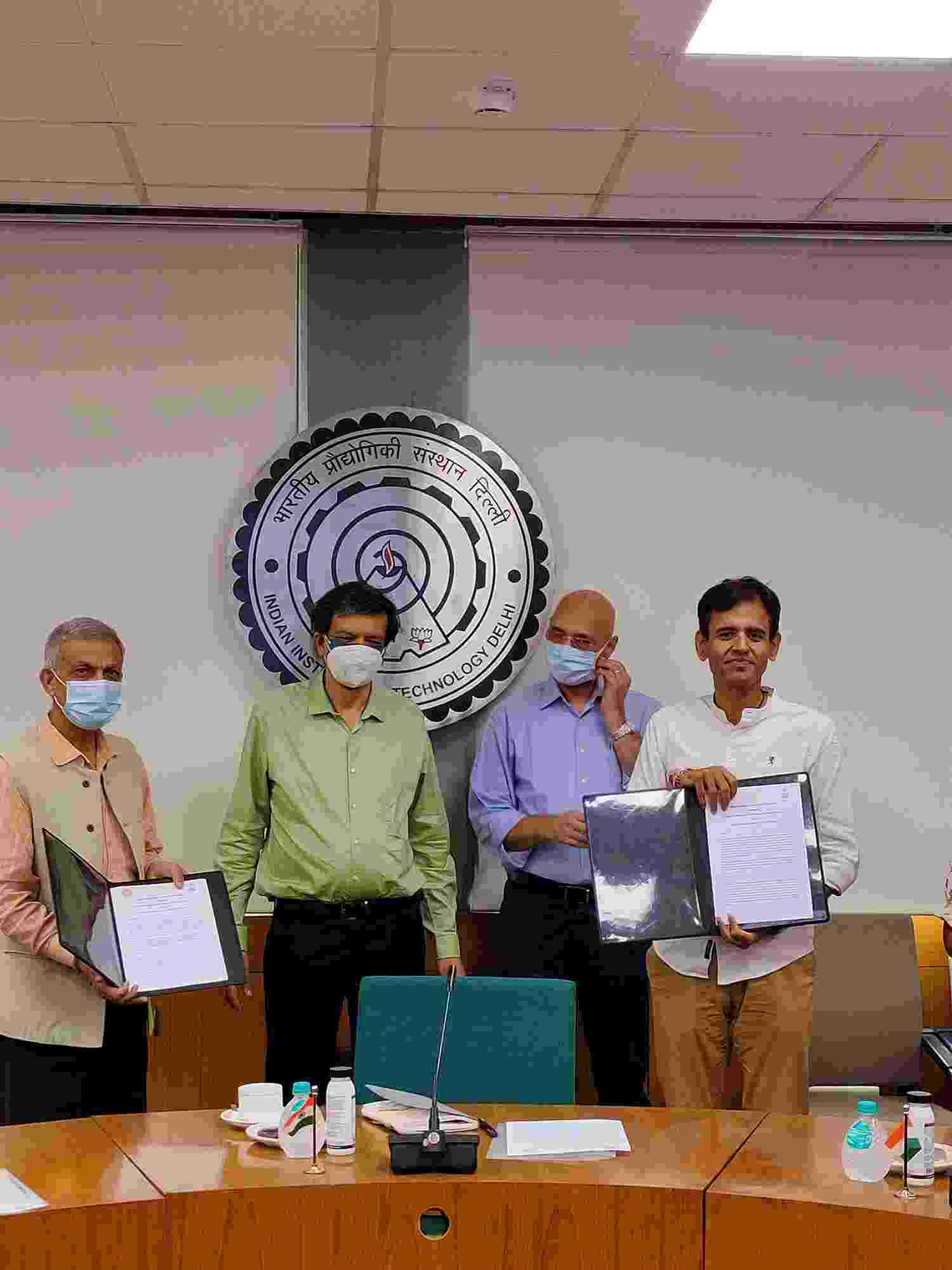Collaboratory update November 2023 | India
All the latest from our Indian team
30 November 2023
Children and young people are the leaders and changemakers of the future. With global challenges and their impacts increasing in intensity and reach, education that highlights principles like sustainability, environmentalism, and global citizenship has never been more important. The Hub is host to the Centre for Water Studies – the first water-planning centre in India, delivered by SPA New Delhi. The chief aim of the Centre is to enhance the capacity of practitioners working in water management and urban development, and it is already starting to have a beneficial impact. This autumn, however, our colleagues at SPA were focused on reaching a slightly different audience, and hosted an event focused on raising awareness and understanding of water security amongst 600 primary school students in Delhi. Designed to help spark changes in behaviour and greater understanding of water use in day-to-day activity, the event included a series of engaging presentations, conversations with parents, a poster competition, and a collective pledge to save water.


Colleagues and partners signing the MoU in 2022
Our India Collaboratory team is working closely with a number of key stakeholders across different scales. Since the Hub’s inception, colleagues at IIT Delhi have worked closely with Delhi’s water utility agency, Delhi Jal Board (DJB), to co-design solutions for the challenges they face. In collaboration with DJB, Hub colleagues are currently developing a framework and set of tools requested by the National Mission for Clean Ganga (NMCG), an organisation committed to rejuvenating the River Ganga.
The team has received some of the data required under the MoU signed with DJB earlier this year, and are now carrying out processing and analysis in order to refine the NMCG dashboard. The team met with Dr Sandeep Kulshrestha, DJB’s lead on geospatial data on the water and sewer network of Delhi, to go through both partners' data requirements and further the development of tools that will help DJB improve water supply management in Delhi. Hub colleagues and DJB representatives are also working together to embed and drive forward water sensitive planning in the strategic development of the city.
As well as working closely with numerous water industry and governance members on an individual basis, our Indian colleagues have established a strong stakeholder network, bringing actors involved in the water sector together for collaborative efforts. Following on from initial discussions earlier this year with the National Institute of Urban Affairs (NIUA), team members recently attended a joint meeting with the Delhi Water Forum (DWF) and World Resources Institute India (WRI India), an independent charity focused on building sustainable and liveable cities. Colleagues presented the work carried out so far under the Water Security Hub and through the formation of stakeholder partnerships, and explored with the DWF and WRI India how best to work together collaboratively and move forwards together to tackle water security and sustainability issues within Delhi.


Screenshot of the ‘AAB Prahari’ app
‘AAB Prahari’, launched last autumn, is a simple, easy to use app based on a citizen science approach. The app allows residents living in Delhi to be directly involved in tackling flooding, encouraging them to report and upload images of real-time flooding incidents in the capital city. Real-time reporting like this aids in the quick identification of flood hotspots and causes, helping in the development and deployment of solutions that both protect Delhi’s residents and tackle the issue. However, engaging local citizens and collecting data isn’t enough to deal with the increasing problem of urban flooding - multi stakeholder involvement and collaboration is crucial in enacting meaningful change. Our team has developed a new relationship with the Public Works Department (PWD) of Delhi, the government agency responsible for planning, designing, construction, and maintenance of government assets like hospitals, schools, roads, footpaths, and bridges. Hub colleagues demonstrated the AAB Prahari app with Sp. Secretary, Ms Shashankla Ala, IAS, from PWD, and the two will now explore working collaboratively.


Dr Kumar and Dr Zeleke at a WSP workshop
Education, knowledge exchange, and capacity building across borders, contexts, and geographies are some of the most important outputs of the Hub. Colleagues at SPA are leading on the Hub’s work on water sensitive planning (WSP) - an approach to sustainable development that places water at the centre of urban and regional planning. Helping to both develop the planners of tomorrow, Hub colleagues at SPA have embedded WSP principles in the institution’s Integrated Masters Programme. As part of their studies students have applied the approach to their work on the functional plan for Udham Singh Nagar, a district located in Uttarakhand in the north of India, helping raise awareness and uptake of water sensitive planning outside of Delhi.
Our Colombia and Ethiopia Collaboratory teams are also working together with Indian colleagues on the preparation of water sensitive layout plans for selected pilot sites in each country. Additionally, colleagues from both India and Malaysia are working together to integrate the Hub’s work on water sensitive planning and climate change.



